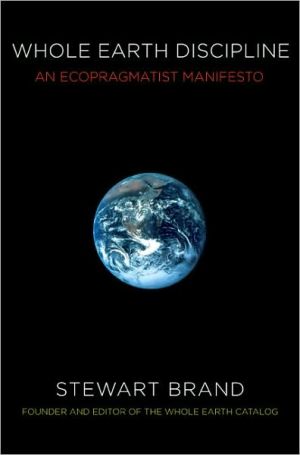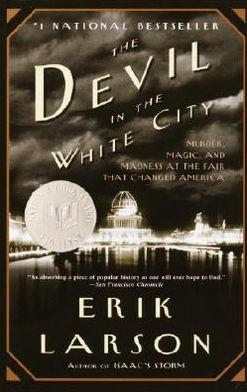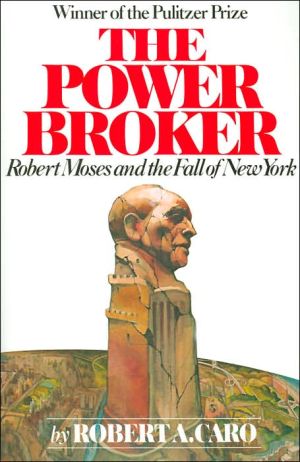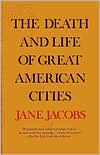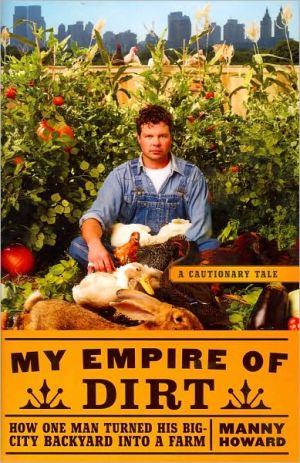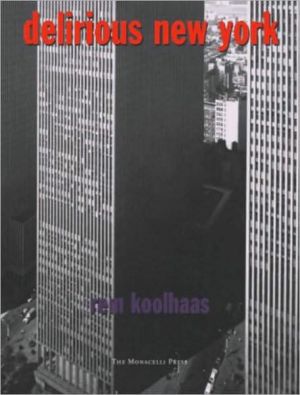Whole Earth Discipline: An Ecopragmatist Manifesto
An icon of the environmental movement outlines a provocative approach for reclaiming our planet\ According to Stewart Brand, a lifelong environmentalist who sees everything in terms of solvable design problems, three profound transformations are under way on Earth right now. Climate change is real and is pushing us toward managing the planet as a whole. Urbanization-half the world's population now lives in cities, and eighty percent will by midcentury-is altering humanity's land impact and...
Search in google:
An icon of the environmental movement outlines a provocative approach for reclaiming our planetAccording to Stewart Brand, a lifelong environmentalist who sees everything in terms of solvable design problems, three profound transformations are under way on Earth right now. Climate change is real and is pushing us toward managing the planet as a whole. Urbanization-half the world's population now lives in cities, and eighty percent will by midcentury-is altering humanity's land impact and wealth. And biotechnology is becoming the world's dominant engineering tool. In light of these changes, Brand suggests that environmentalists are going to have to reverse some longheld opinions and embrace tools that they have traditionally distrusted. Only a radical rethinking of traditional green pieties will allow us to forestall the cataclysmic deterioration of the earth's resources.Whole Earth Discipline shatters a number of myths and presents counterintuitive observations on why cities are actually greener than countryside, how nuclear power is the future of energy, and why genetic engineering is the key to crop and land management. With a combination of scientific rigor and passionate advocacy, Brand shows us exactly where the sources of our dilemmas lie and offers a bold and inventive set of policies and solutions for creating a more sustainable society.In the end, says Brand, the environmental movement must become newly responsive to fast-moving science and take up the tools and discipline of engineering. We have to learn how to manage the planet's global-scale natural infrastructure with as light a touch as possible and as much intervention as necessary.Publishers WeeklyBrand, co-author of the seminal 1969 Whole Earth Catalog, compiles reflections and lessons learned from more than 40 years as an environmentalist in this clumsy yet compelling attempt to inspire practicable solutions to climate change. Brand haphazardly organizes his “manifesto” into chapters that address environmental stewardship opportunities, exhorting environmentalists to “become fearless about following science”; his iconoclastic proposals include transitioning to nuclear energy and ecosystem engineering. Brand believes environmentalists must embrace nuclear energy expansion and other inevitable technological advances, and refreshingly suggests a shift in the environmentalists' dogmatic approach to combating climate change. Rejecting the inflexible message so common in the Green movement, he describes a process of reasonable debate and experimentation. Brand's fresh perspective, approachable writing style and manifest wisdom ultimately convince the reader that the future is not an abyss to be feared but an opportunity for innovative problem solvers to embrace enthusiastically. (Oct.)
\ From Barnes & NobleStewart Brand does waste his time on old, small, tired ideas. In his paradigm-challenging Whole Earth Catalog series (1968-98), the maverick environmentalist displayed a thousand strands of new-knowledge light. His Whole Earth Discipline goes even further, laying out a detailed, largely counterintuitive stance on saving a planet in crisis. Brand's positions are, to say the least, heterodox: Attacking the environmental movement's deep roots in romanticism, he asserts that cities, nuclear power, and genetic engineering are good things for global survival.\ \ \ \ \ Publishers WeeklyBrand, co-author of the seminal 1969 Whole Earth Catalog, compiles reflections and lessons learned from more than 40 years as an environmentalist in this clumsy yet compelling attempt to inspire practicable solutions to climate change. Brand haphazardly organizes his “manifesto” into chapters that address environmental stewardship opportunities, exhorting environmentalists to “become fearless about following science”; his iconoclastic proposals include transitioning to nuclear energy and ecosystem engineering. Brand believes environmentalists must embrace nuclear energy expansion and other inevitable technological advances, and refreshingly suggests a shift in the environmentalists' dogmatic approach to combating climate change. Rejecting the inflexible message so common in the Green movement, he describes a process of reasonable debate and experimentation. Brand's fresh perspective, approachable writing style and manifest wisdom ultimately convince the reader that the future is not an abyss to be feared but an opportunity for innovative problem solvers to embrace enthusiastically. (Oct.)\ \ \ Library JournalBrand, now a senior citizen, is best known as the editor of the counterculture classics Whole Earth Catalog (1968–85) and CoEvolution Quarterly. An ecologist by training, he has also written books and articles about the environment. His latest is a personal call to citizens and organizations to make every possible effort at managing further climate change. Brand makes a strong case for taking a pragmatic approach—beyond environmentalism—keeping some of our technological civilization alive while reducing our net carbon emissions to a minimum. The methods he promotes include urban density, vertical farms, nuclear power plants, and biotechnology. Referring to scientist James Lovelock's statements that climate change cannot be halted now and will turn many habitable regions into parched wasteland, Brand outlines visionary and risky geoengineering projects that may be deployed to mitigate global warming. VERDICT Despite the occasional flippant comment, Brand's tough but constructive projection of our near future on this overheating planet is essential reading for all. [Six-city tour; see Prepub Alert, LJ 6/15/09.]—David R. Conn, Surrey P.L., B.C.\ \ \ \ \ Kirkus ReviewsA comprehensive, forward-thinking blueprint for sustainable living. Brand (Clock of the Long Now, 1999, etc.), who won a National Book Award for his groundbreaking Whole Earth Catalogue in 1972, provides readers with the most necessary survival tool in this era of increasing climate change: well-researched, accurate information and a guide with which to use it. Our ability to combat the greenhouse gases that threaten earth's delicate ecosystems have reached a breaking point, and only concerted, global efforts that have been properly analyzed for macroeconomic value-as opposed to, say, drilling for oil offshore or burning "clean coal"-can stave off a further increase in global temperature that will precede a catastrophic climate crisis. The author proposes that a drastic re-evaluation of "green thinking" is required to accomplish this, claiming that the recent environmental movement is muddled in their message and has even been a hindrance to certain eco-alternatives, such as nuclear energy and genetic engineering. As people continue to migrate into cities and technology pervades even the poorest of slums, an agricultural revolution would offer a chance for farming to become a profitable urban enterprise and nature to reclaim rural areas. Brand writes with clarity, directness and wit, and despite his obvious partisanship toward environmentalism, he never proselytizes. His long career precedes him, and those who have followed his crusades over the years will find his admissions of error in some past arguments-specifically the viability of nuclear power-refreshing. Also inspiring is the sheer amount of knowledge he imparts on dozens of issues. He deftly reflects on the subtle differencesin biotechnical, scientific, ecological, political and sociological arguments and refrains from tiresome parable. His message is clear. We have passed the point of no return where climate is concerned, and drastic, well-planned and innovative measures to combat total ecological collapse must be implemented now. Breathtaking in scope and implication-a must-read. Agent: John Brockman/Brockman Inc.\ \
